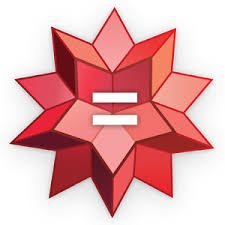Philosophy of Education: You Need Just Three Languages to Succeed
Every so often I take a break from teaching the syllabus and talk to my students about life, the universe and everything. This usually ends up revolving around how to learn effectively and what to concentrate on.
Thinking about what students really need to focus on, I tell them that they just need to learn three languages: English, mathematics and programming. In essence, students should aim to be literate, numerate and logical.

Literate
The ability to express oneself clearly is important, whether it be in English or your native language. I am a big fan of the classical Liberal Arts trivium of logic, rhetoric and grammar. Even if one needs to be impenetrably obscure, that too is an art that needs to be practiced. Being able to turn abstract ideas into concrete sentences will also make the difference between being ignored and being listened to.

Numerate
Mathematics is everywhere and yet usually hidden. There is a disturbing split that takes place some time around the introduction of algebra where some students "get it" and the rest just look bemused. Students really need some basic level of mathematics, some understanding of how similar patterns occur in different environments, and some way of reading mathematics in the same way they understand traffic signs. With another nod to the Liberal Arts quadrivium, I would retain arithmetic, geometry and the practical applications of both.

Logical
The birth of computing has created a third kind of language: the algorithm. There is some overlap here with classical logic and mathematical logic, but programming languages can teach a lot about feedback and loops and decision-making. I tend to teach students what I think is a fairly simple and intuitive language, Python, and I also focus their minds on pre-coding the structure of their algorithms with pseudocode.
That's it! Everything else is a mixture of the above skills, dependent on each individual's talents and commitment. There are obviously other skills, both personal and interpersonal, that make life more than just an algorithm, but those require a different set of learning techniques.
Just to reiterate, I feel students need to express themselves eloquently and clearly, to handle abstract and symbolic ideas and be able to analyse processes and systems using algorithms.
What do you think?
images: Pixabay, Wolfram
I like that your conversations are focused on how to learn effectively. Reading a lot helps, but figuring out what to read is difficult. What books would you recommend for Mathematics and Logic? Our family is currently using Khan Academy with great success for both of these "languages", but we don't have many intro books on Mathematics and Logic.
Luckily, I've just posted this short article: Free Online Courses on Coursera Starting Soon - Philosophy and Logic
I think it has just the right course for you, that include texts too.
Also, I used to use this Critical Thinking Web (also from HK): http://philosophy.hku.hk/think/
Textbooks for pre-undergraduates are either rare or poor - unless someone can comment with their suggestions.
Maybe I should post my own mini-course!
Very interesting take. Logic is the most under-valued educational skill in our schools. Ironically, it may be the most important and practical. It is the key to unlocking so many of the false choices that our kids are presented with. It is much easier to keep individuals in a consumerist loop, when they are incapable of thinking of the futuristic consequences of remaining in it. A skeptic could even arrive at the conclusion, that logic is purposely omitted from the classroom in order to continue our present and flawed societal paradigm.
Thanks, I am in no doubt that logic is omitted precisely to dumb down our kids. In the UK there is an A level called Thinking Skills (soft logic) and I taught this some 3 or 4 years ago - every student dropped it! They all said the same thing: it was too hard and it made their brain ache! I quote from memory, "I have never had to think this hard!" They were 17-18 year-olds; and they were bright for their cohort.
Damn.... that's... just sad.
I think the system needs a rethink on a near-global level.
Sadly that's going to be very difficult, as we can't exactly establish a Global Ministry of Education easily (Though we should... we really should).
Logical, Literate and Numerate... That does seem like the most important trio indeed !
If we want our future to be more "utopian" than "dystopian", we're really going to have to figure out a way to revamp the educational systems everywhere.
So that the formative years are spent working on the Three Pillars, and only later do students choose specialities.
Hmmm... We'd probably need to redefine what is necessary for a basic citizen. Knowledge of history (a simplified and global version, and none of that what was the prince's name and how many wives did he have ? rote memorisation.) is the one I can think of immediately, but what else ?
As a scientist, I'm biased towards basic knowledge of the biggest scientific domains.
And, of course, the educational system should finally take "citizen skills" or society classes seriously. Teaching the younglings the basic laws of the country, where to find the rest of the laws, their Human rights (Apparently there's 30... I know at max 5-6 XS), critical thinking/skepticism...
Lots of stuff XO